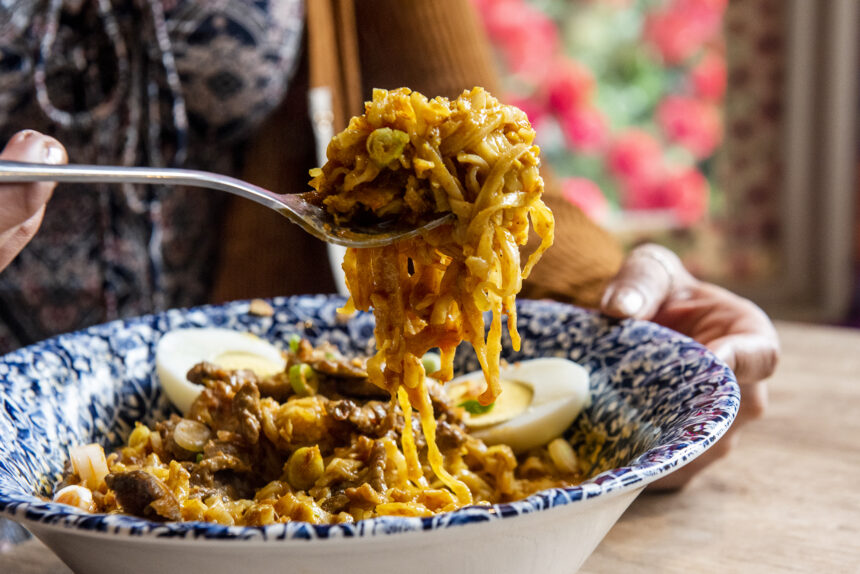The transformation of Toronto’s Wellington Market from a traditional food hall into what might become the city’s most sophisticated culinary destination is happening right before our eyes. I’ve been watching the development of this space with particular interest, especially as it continues to attract an impressive roster of talent.
Just last week, I visited the market to investigate rumors about new additions to their already impressive lineup. What I found confirms that Wellington is positioning itself as much more than just another food hall – it’s becoming a concentrated showcase of Toronto’s diverse culinary excellence.
The market recently announced several notable additions including concepts from Michelin-recognized chefs, building on their strategy of bringing together the city’s most celebrated culinary talents under one roof.
“We’re creating something that Toronto hasn’t seen before,” explains Sara Mitchell, Wellington Market’s director of operations, during our conversation beside the market’s striking central bar. “The vision was always to create a destination that represents the best of what this city has to offer gastronomically.”
Among the new arrivals is Chef Daisuke Izutsu, whose omakase concept Sushi Masaki Saito earned two Michelin stars in 2022. His new counter-service spot will offer a more accessible version of his precisely crafted Japanese cuisine.
“Toronto diners are incredibly sophisticated,” Chef Izutsu told me while demonstrating his knife technique. “This format allows me to reach more people while maintaining the standards that define my cooking.”
The market has also secured Chef Nick Liu, whose DaiLo restaurant received a Michelin Bib Gourmand distinction. Liu’s new concept will focus on Chinese barbecue with modern interpretations of classic techniques.
According to data from Tourism Toronto, culinary tourism has increased by 23% in the city over the past three years, with food halls becoming particular draws for visitors and locals alike. Wellington Market seems perfectly positioned to capitalize on this trend.
What strikes me about Wellington’s approach is how it democratizes access to high-end culinary experiences. During my visit, I observed groups of university students, families with young children, and corporate executives all enjoying food that would typically require reservations weeks in advance or carry significantly higher price points.
Chef Suzanne Barr, another recent addition to the market, explained the appeal from a creator’s perspective: “It gives us a chance to experiment with concepts that might not support a full restaurant, while still connecting with diners who appreciate what we’re doing.”
The market’s design intentionally encourages exploration, with communal seating areas that invite conversation between strangers. During lunch service, I witnessed three separate instances of diners recommending dishes to people at neighboring tables.
However, the project isn’t without challenges. Several restaurant industry veterans I spoke with expressed concern about whether the concentration of so much talent in one venue might impact the broader restaurant ecosystem in Toronto.
“There’s always going to be a place for the traditional restaurant experience,” counters Mitchell. “We’re offering something complementary, not replacement.”
The Wellington Market concept reflects broader trends in urban dining, where consumers increasingly seek variety and quality without the formality or time commitment of traditional fine dining. According to Restaurants Canada, food halls have seen a 37% growth nationally since 2019.
For Toronto residents, the market represents something uniquely valuable – access to some of the city’s most celebrated culinary minds in a casual, approachable environment.
“I’ve wanted to try Chef Liu’s food for years, but DaiLo is always booked solid,” says Markham resident Jennifer Wong, whom I met enjoying a plate of Liu’s char siu. “Now I can just walk in and experience his cooking without planning months ahead.”
As Wellington Market continues its evolution, it seems poised to redefine how Torontonians think about casual dining. By bringing together this concentration of talent, they’re creating something that transcends the traditional food hall concept while remaining distinctly rooted in Toronto’s diverse culinary identity.
For anyone tracking the city’s gastronomic development, Wellington Market deserves close attention. It represents not just a new dining option, but potentially a new model for how culinary talent can reach broader audiences while maintaining the standards that earned them recognition in the first place.







